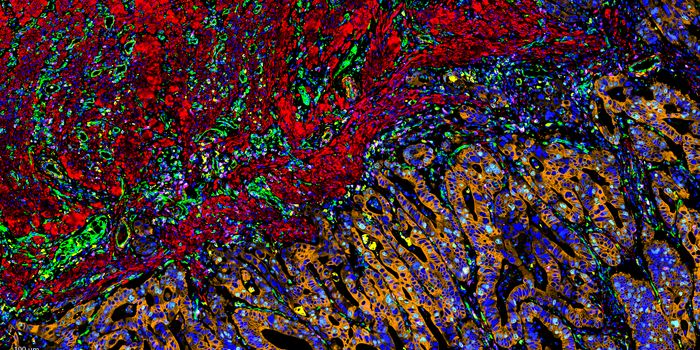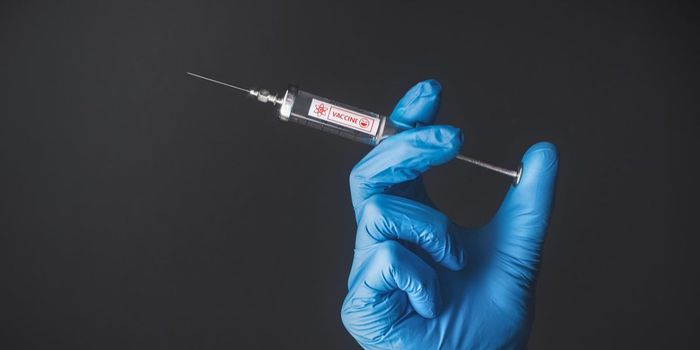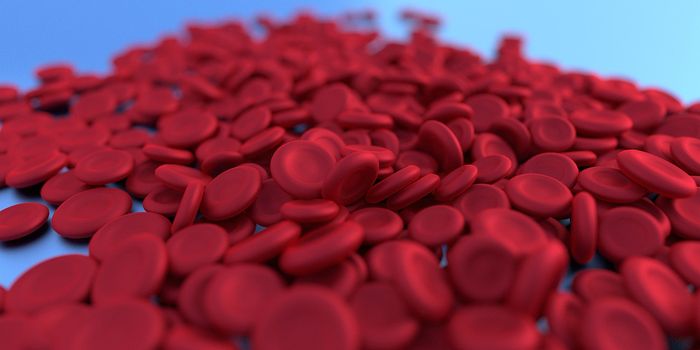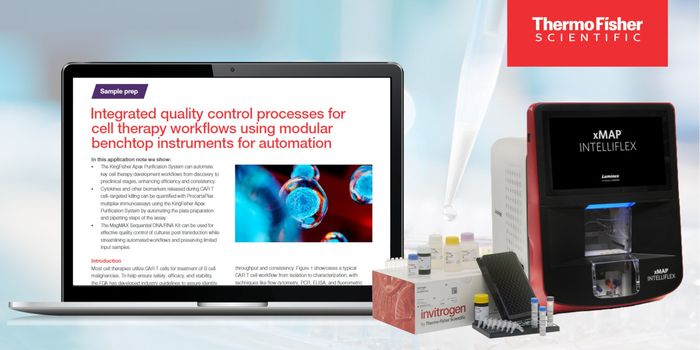3D Hydrogel Biochips Improve Colon Cancer Detection

For cancer, treatment outcome and survival is directly influenced by early detection and intervention. This is especially true for colorectal cancer, which surreptitiously lurks in the body with minimal symptoms in the early stages, only to become fully malignant when it’s nearly too late. To increase the rate of early detection of colorectal cancer, researchers have created a hydro-gel based biochip that can detect cancer with unprecedented sensitivity. With the device, the team hopes to significantly increase patient survival.
Colorectal cancer, also known as colon cancer or bowel cancer, is the third most commonly diagnosed cancer type in the world. The cancer usually begins as small, benign lumps of cells that form polyps in the colon. Without proper removal, these polyps can turn cancerous and cause symptoms such as abdomen pain, rectal bleeding, weakness, and fatigue. According to a recent report, the incidence of colorectal cancer is expected to increase by 60% to more than 2.2?million new cases and 1.1?million deaths by 2030.
Current detection methods for colorectal cancer include invasive colonoscopy procedures that check for the presence of pre-cancerous polyps. When polyps are found, physicians can remove it before they turn into cancer. Another source of detection is through screening patients for commonly mutated genes that are associated with colorectal cancer. This method picks out people who have a high risk of hereditary colorectal cancer, such as in familial adenomatous polyposis (FAP). But despite these efforts, colorectal cancer can still strike.
Molecules secreted by the colorectal cancer can alert doctors to the presence of the disease. However, the biomarkers currently being used - carcinoembryonic antigen (CEA) with carbohydrate antigen (CA) 19-9 – only detect the disease 50 percent of the time. This low sensitivity makes it unreliable as a diagnostic test.
But recognizing that biomarkers hold immense diagnostic potential, Russian scientists sought to find more sensitive molecules that can detect colorectal cancer. For this, they turned to colorectal tumor-associated glycans – molecules that allow researchers to differentiate healthy cells from cancerous ones.
The team then used a 3D hydrogel-based microchip, which held cells that contained the immobilized antibodies. The antibodies used included six (CEA, CA 19–9, CA 125, CA 15–3, HCG, and AFP) as well as immobilized glycans. This platform allows the team to use blood samples obtained in routine checks, minimizing unnecessary medical procedures to the patients.
As they had hoped, the glycans proved to be much more sensitive at picking up colorectal cancer than traditional biomarkers alone. In a cohort of 129 blood samples, healthy and diseased, the platform achieved 87 percent sensitivity and 97 percent specificity. This means the test has high accuracy detecting those with colorectal, and just as importantly, those without colorectal cancer. The new platform outperformed the standard test significantly.
"The method developed at [the Engelhardt Institute of Molecular Biology] has great potential to be used in diagnosing gastrointestinal diseases. We hope that testing systems based on the method will soon appear in clinical laboratories in Russia," said Zhanna Zubtsova, assistant professor at the Moscow Institute of Physics and Technology, and co-author of the study.
Additional source: Science Daily








